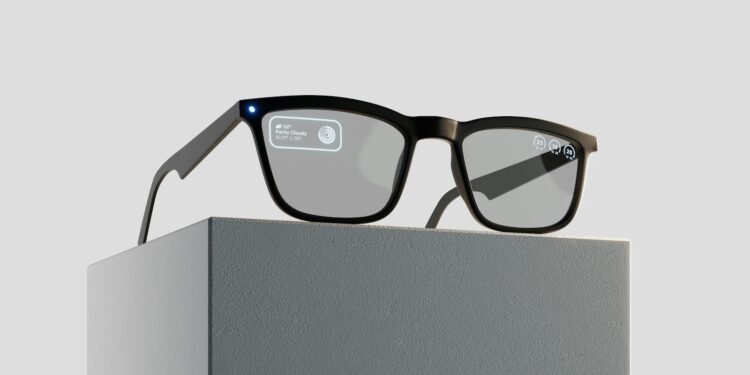According to a Bloomberg report, Apple is developing a new product in the field of augmented reality. Tim Cook is at the center of the project, and he's putting all his heart and soul into real AR glasses. At the same time, the company is working on an intermediate step: smart glasses with cameras and microphones. The goal is to avoid leaving the market to Meta in this product category.
Augmented reality is considered one of the next big technology fields. While Meta has already released its first products, Apple is pursuing a different path. The company doesn't want to bring an unfinished device to market, but rather a fully developed product with real everyday utility. However, the path to this goal is technically challenging and time-consuming. In the meantime, Apple could gain initial experience with simpler glasses – and introduce users to the topic.
Tim Cook focuses on one goal
According to internal sources, Tim Cook is determined to develop an industry-leading AR product. An Apple engineer is quoted as saying that Cook is so passionate about the topic that "nothing else interests him." Developing full-fledged AR glasses is his "top priority." He isn't investing his time in any other product with comparable intensity.
Apple plans smart glasses with cameras and microphones
While the full AR glasses are still in the works, Apple is planning an interim product, according to a Bloomberg report by Mark Gurman. They are developing glasses with integrated cameras and microphones, similar to the Meta Ray-Ban. They will rely on visual intelligence and Siri – the AI components that Apple is currently developing. A key differentiator from Meta's product is its approach to data protection. Apple wants to prevent the glasses from recording media in an uncontrolled manner. This is likely to have a direct impact on design and functionality. The smart glasses will therefore likely be less aggressive with camera functions and focus more on assistance systems (via Bloomberg).
Technological challenges for real AR glasses
According to Gurman, the long-term goal remains full-fledged AR glasses. However, Apple must overcome several technological hurdles to achieve this. These include:
- High-resolution displays that can be accommodated in compact lenses
- A powerful but energy-efficient chip
- A tiny battery that lasts for several hours
- Software and applications that make the device useful in everyday life
- Production processes that enable all this in large quantities at a mass-market price
Currently, many of these components are not yet market-ready or are not available in sufficient quality. Even if all the individual parts have been developed, they still need to be assembled and produced cost-effectively—a time-consuming challenge.
Meta is already on the market – Apple under pressure
Meta has already positioned itself in the smart glasses category with its Ray-Ban glasses. Last year, Meta also unveiled a prototype of its "Orion" AR glasses. While this version is still many years away from market readiness and extremely expensive, according to the report, the move demonstrates that Meta is putting pressure on the company. According to Gurman, Tim Cook is determined not to allow Meta to gain a permanent lead in this area. Cupertino is therefore working not only on long-term solutions but also on short-term products to maintain its presence.
Apple relies on a phased approach to AR
In the medium term, Apple will launch smart glasses that combine cameras, microphones, and AI functions. This will serve as a transitional product, while the development of full-fledged AR glasses is being pursued with high priority in the background. Tim Cook apparently sees this technology as the next key innovation – comparable to the iPhone. However, many technical and commercial challenges must be resolved before then. (Photo by Unsplash+ / YASA Design Studio)
- Apple Vision Pro: Two new models in the works
- iPadOS 19 brings Mac feeling to the tablet – that’s what’s changing





